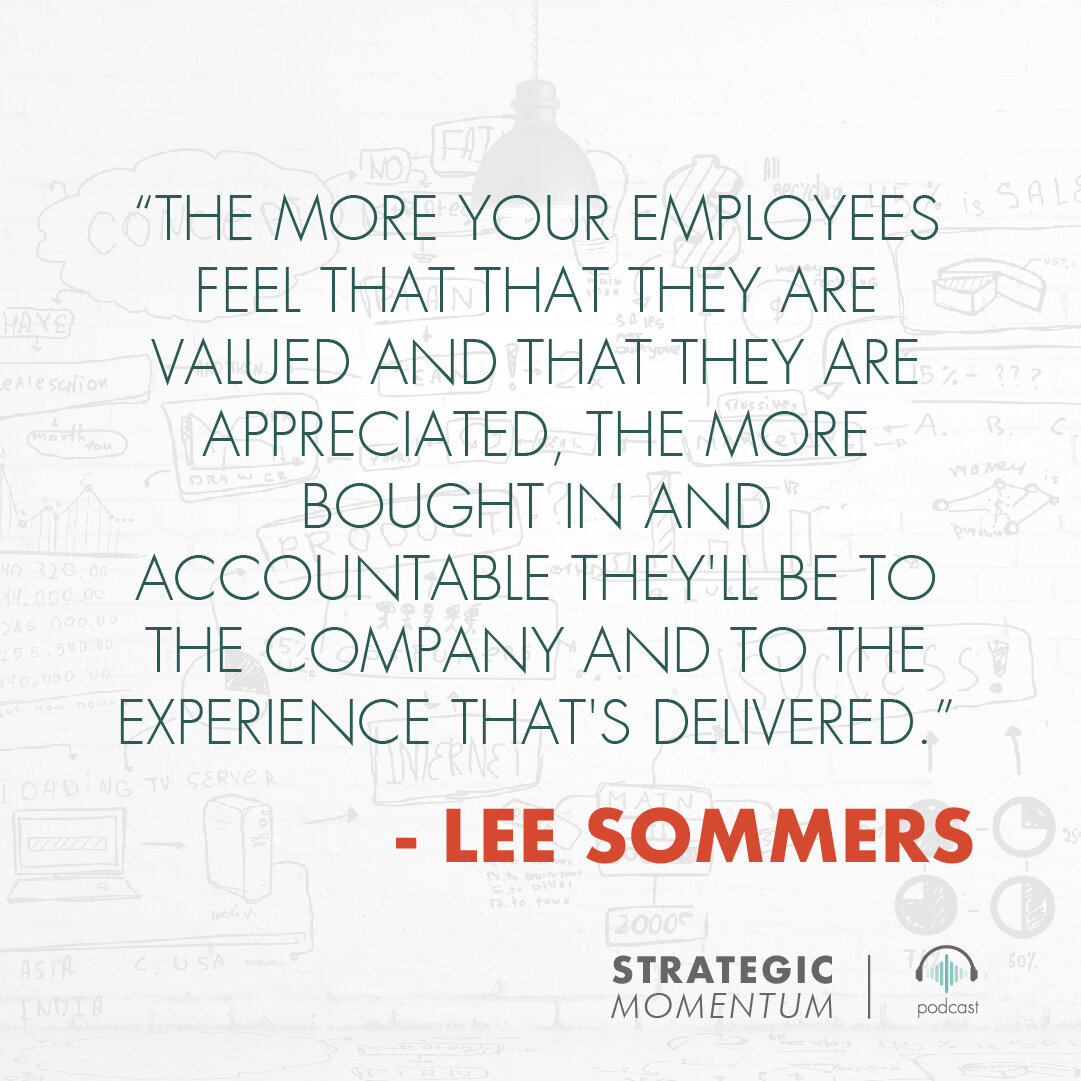Ep. 14 - Employees & Customer Relationships: Key Components to Delivering a Customer-Centric Experience
Find Us Wherever You Listen To Podcasts
Lee Sommers is the owner of Purpose Personal Fitness, a leading strength and athletic training company.
He’s been involved in the fitness industry for almost 20 years and has worked with athletes of all levels, including Olympic champion Katie Ledecky. He has seen the industry evolve over that time with a primary focus on profit over people, which Lee believes is a mistake, in the long term.
In the fitness industry, Lee believes that you need to be customer-service oriented to deliver an optimal experience; in other words, be customer-centric. And he’s not the only one: as we discussed with Mike Renner back in Episode 8, customers have more influence than ever in today’s digitally focused environment.
So it’s critical to keep a pulse on what your customers need because, obviously, you can't stay in business if you're not turning a profit – and “a service mentality is what really feeds profit.”
Being Customer-Centric Starts With Your Employees
Customers increasingly care about the brands that they interact with. And in service-oriented ones like the fitness industry, your employees are responsible for creating that compelling brand experience.
But if the corporate culture prioritizes sales and the bottom-line over service, you are bound to create barriers for them and your company.
A mentality of selling to just get a new gym member in vs. selling with the purpose of a potential gym member’s overall health and wellness in mind is one end result. And having the right talent – those that have the right training, work experience, and passion for what they do – isn’t a focus. It actually becomes quite the opposite.
And with employee churn so prevalent in the industry, Lee says, “You wind up a lot of times going quantity over quality as far as the type of candidate, the type of person you're going to bring in. And that's–it's unfortunate, but it is the reality of the industry at this time.”
So without a consistent staff delivering a consistent experience, it becomes challenging to be truly customer-service oriented.
Don’t Forget the Importance of Building a Trusted Relationship
Customer-centricity also can’t happen if you aren’t able to establish a tight relationship with your customers and even those closely involved with them. At the end of the day, you have build a foundation of mutual trust.
Key Takeaways
Focus on your employees because they are your frontline to delivering the customer-experience.
The more your employees feel that that they are valued and appreciated, the more bought in and accountable they'll be
Bringing up the quality of your service to the consumer both personally and professionally can be done by investing in your employees through training and education
To build a trusted relationship with your customers, communication is key.
Providing transparency around what you are doing and why on both the macro and micro level will get you the buy you need.
Yet, the relationship building isn’t limited to your direct customers/clients alone – Take into account all of the people involved in your customer’s success.
This multifaceted partnership shows you are thinking holistically about how to collectively help to achieve your customer’s end goal.
DOWNLOAD THE EBOOK
Get the key insights and advice from this episode in a PDF presentation.
Resources:
Connect with Lee: Instagram | LeeSommersPT (at) gmail (dot) com













